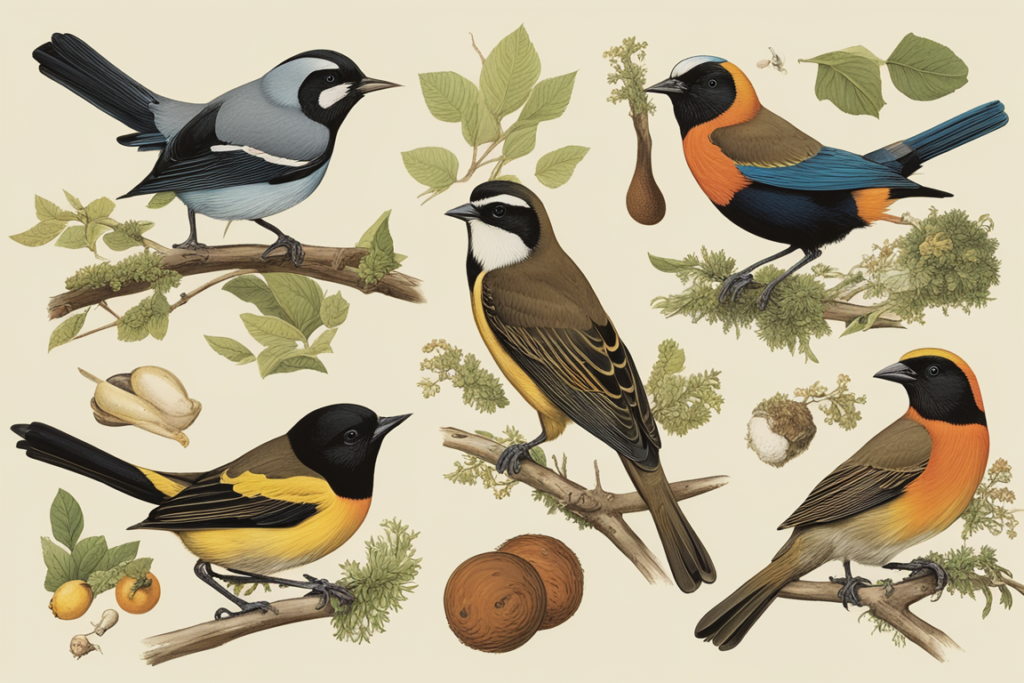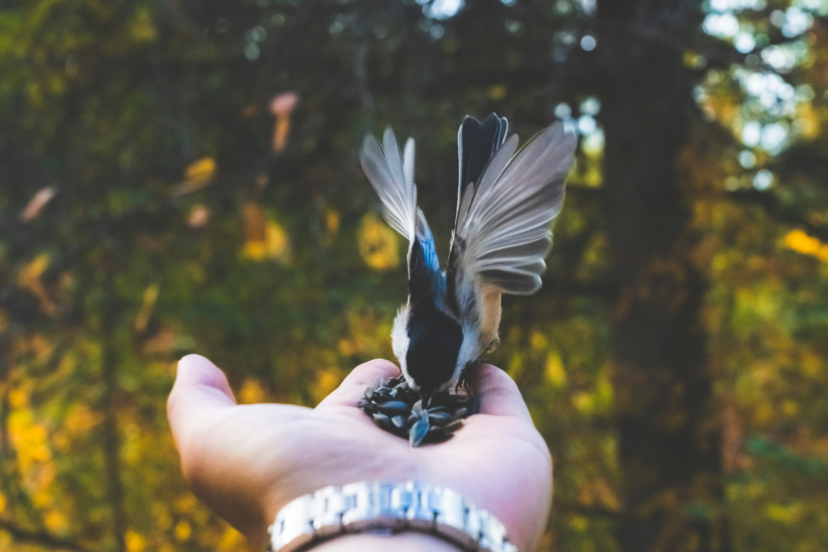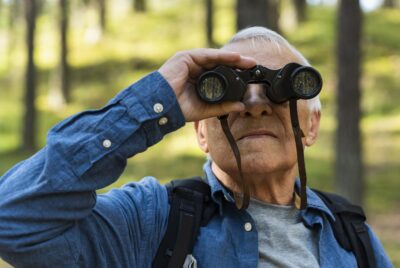Insights into Bird Behavior: Can Birds Recognize Humans Who Feed Them?
Believe it or not, some birds can actually recognize humans apart, especially those who fill their feeders! Scientists have discovered that birds like crows, parrots, and even chickadees can remember the people who feed them. They do this by noticing things like faces, voices, and even how you act. This amazing ability shows how smart birds are and suggests they might even develop connections with humans!
The Science of Bird Recognition
Birds are way smarter than we thought! They’re really good at remembering things and figuring out puzzles. Scientists tested them and found out birds can even count a little and understand when one thing makes another thing happen.
Some birds, like crows, ravens, and parrots, are even better at remembering us humans! Crows can recognize faces, even if the person is wearing a mask! Parrots might even call you by name if they know you well.
Scientists tagged some wild birds and saw that they remembered friendly humans and weren’t as scared of them. Even pigeons could pick out pictures of specific people!
Birds and Human Interactions
Living around people, many birds become comfortable with our presence, especially city birds like pigeons and seagulls. Feeding them can change their behavior: they might be calmer around you if they know they’ll get a tasty treat!
But it’s not just fun for them. We get to see beautiful creatures up close, and scientists learn how birds and humans interact. By watching how birds react to feeders and people, they understand how smart birds truly are!
One way scientists gauge bird intelligence is by observing how they act around familiar humans compared to strangers. If a bird acts differently, it might recognize and remember you!
Also read: The Complexities of Bird Behavior and Interaction with Humans

Birds Recognizing the Feeders
Think only fancy parrots recognize faces? Not true! Many wild birds, from backyard chickadees to soaring eagles, can tell humans apart, especially those who feed them. Here’s how birds know:
- Crows: These brainiac birds remember faces for years, associating them with good (food!) or bad experiences. So be nice, they might remember!
- Parrots: Studies show they can recognize owners even after years apart, thanks to their sharp eyesight and memory. Your feathered friend might know you from afar!
- Wild birds like hawks and robins: They learn to recognize humans who bring food or pose a threat, helping them stay safe and find reliable meals.
Overall, recognizing feeders provides a survival advantage. Birds can identify safe zones and people, avoiding potential threats and maximizing access to reliable food sources.
How Birds Recognize Humans
Birds aren’t just pretty chirpers, they’re surprisingly good at recognizing the humans who care for them! Researchers have identified several ways birds might identify specific people:
Visual Cues: Birds have excellent eyesight and can tell people apart by their faces. Magpies are champs at this, remembering faces for years!
Auditory Cues: Your voice is another clue. Parrots famously memorize their owners’ voices, and other birds learn the unique sounds of their feeders.
Scent Detection: Like dogs, birds might use scent to identify people. This adds another layer to their recognition abilities.
Pattern Recognition: Over time, birds link feeding times with specific sights, sounds, and smells of their regular feeders. This creates a strong mental picture of you!
Memory Skills: Birds have impressive memory for objects, places, and events. This helps them remember good things like food and safety, and who provides them!
These skills likely evolved to help birds survive. Recognizing flock members and threats was crucial in social groups and complex environments.
The Impact of Feeding on Bird Behavior
Feeding birds affects how they act around people. Studies show seed eaters get excited waiting by the feeders, even tapping on windows if food is late. They don’t seem as scared of humans because feeding rewards them.
Some experts think regular meals make birds see people as safe instead of scary. The birds form good bonds with the ones caring for them and recognize people as food sources. Baby birds may also learn this from their parents.
Birds also like their regular people best. Tests find ones that get fed by the same person always stay calmest near them. It looks like long-term kindness from food helps birds view people in a good way. Their remembering then helps keep peaceful meetups benefitting both birds and bird watchers happy to feed them!
Feeding also gives scientists new ways to learn about bird smarts through behaviors toward providers. This helps us understand better what birds can think about and how they connect with their favorite food-givers.
Bird Feeders: A Tool for Connection

Backyard bird feeders offer a unique opportunity to observe and connect with feathered friends. By providing a consistent food source, you can encourage birds to visit your yard regularly.
Key Steps:
- Choose the right feeder: Different feeders attract different birds. Research suitable options based on local species and food preferences.
- Safe placement: Position the feeder in a sheltered location away from predators like cats.
- Regular refills: Maintain a steady supply of food to build trust and encourage regular visits.
- Stationary vs. mobile feeders: Stationary feeders are easily recognized, while mobile ones connect to the person carrying them.
Building Bonds:
- Observing interactions: Watch for subtle behaviors like birds approaching closer or vocalizing upon seeing you. This suggests they associate the feeder with specific individuals.
- Consistent schedule: Sticking to a regular feeding time strengthens their memory of who you are.
- Experimentation: Changing things up occasionally can test how well birds recognize individuals, offering insights into their intelligence.
Ultimately, bird feeders create a platform for cross-species friendships based on shared moments of nourishment, care, and routine.
Feeding Birds in Their Natural Habitat

Birds use visual and auditory cues, as well as memory and problem-solving skills, to find food in different habitats and adapt to changing weather conditions.
Winter is tough for birds. Finding food gets harder with fewer insects and plants. Many people want to help and feed wild birds, and offering the right food in the right places can make a big difference.
Instead of drastically changing their diet, offer seeds, nuts, and berries they naturally find in your area. Place feeders near their usual feeding spots, like trees and bushes.
Over time, birds learn to associate people who refill feeders with food. Birds recognize the people who feed them. They become more comfortable around people who help them survive the winter.
Providing regular, natural food sources, as well as water resources, in their habitat respects their natural behavior while still offering critical support. This approach helps birds thrive even when food is scarce. Spending time to keep the feeders filled makes life easier for them.
It is also important to not keep the feeders at the same level. Many birds will feed at more than one level, but some bird species have preferences. For example, a friendly american robin feeds on the ground while other backyard birds prefer hanging feeders.
The Role of Consistency in Feeding
Fill those feeders at the same times every day, and birds will learn to love you for it! Studies show that predictable feedings help birds connect food with specific people.
Think of it as a bird’s internal clock. When food shows up at 7 AM and 5 PM every day, they learn to expect it and remember who brings it. This consistency helps them recognize you and build trust.
Changing things up confuses birds. They might miss meals or get stressed. Sticking to a schedule strengthens your bond, like a reliable friend they can count on. Birds don’t forget reliable food sources so regularly filling the bird feeder will keep the strong bond.
So, by being predictable with feedings, you’re not just filling bellies, you’re building trust and helping birds understand their world. Remember, happy birds and happy feeders go hand-in-hand!
Final Thoughts
Avian researcher John Marzluff showcases a few amazing, problem solving (and sometimes vindictive) feats accomplished by crows in order to break down common misconceptions about avian intelligence. Turns out, many birds are quite intelligent creatures! Studies show they can recognize specific individuals who feed them and crows remember faces and human kindness for years! When humans feed birds, they also pay close attention to facial features, patterns, markings, and expressions This helps them with facial recognition, allowing them to feel safe and build a kind of friendship with their feeders. Regular feeding teaches baby birds not to fear people too.
Birds feel most relaxed around familiar feeders, especially when it’s the same person every time. Birds remember human kindness and they recognize individual humans who feed them. This shows kindness with food goes a long way in helping birds see humans positively. It even lets scientists peek into a bird’s mind, learning how they think and interact with their human “food friends.”
So, next time you see a bird enjoying a snack, remember that they might be recognizing and appreciating you more than you think! They may also associate humans like you with kindness.




